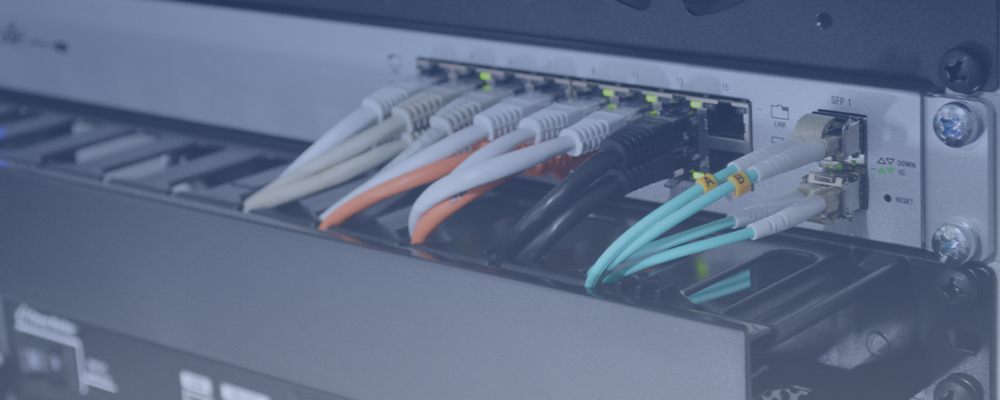Compliance Requirements During A Decommission Project – What You Need to be Aware Of
One of the most critical aspects of a data center decommission is ensuring compliance. In order to guarantee that the decommissioning process complies with all legal requirements and industry standards, there are a variety of data protection, environmental, software licensing, and partner contractual requirements that must be followed.
This article will discuss the importance of tracking documented changes throughout the entire process and establishing operational procedures. We will also discuss the importance of reviewing any contracts you may have with suppliers or customers before starting the decommission process.
Regulations & Contracts: How to Ensure Compliance During Decommission
Decommission projects refer to the systematic and planned process of taking devices, applications, and other technology components out of service or off the network. It’s a complicated process that involves several steps, including data compliance checks, along with many other critical milestones.
Safe & Proper Disposition of data
A successful decommission project must take into account all applicable data protection regulations related to the handling and processing of sensitive customer or corporate information in order to comply with any applicable laws or regulations for safe handling and disposal of data.
Additionally, companies must have procedures in place for disposing off their data assets according to standards set out by industry organizations such as ISO 27001 or NIST 800-88 Rev 1. This included ensuring that you maintain a secure chain of custody with proper documentation on what was done, when and by whom.
By adhering to these standards, companies can better protect themselves from potential regulatory actions and legal liabilities associated with the mishandling of customer or corporate information.
Adherence to Your Corporate Data Retention Policy
Data retention policies are an important part of every organization. They handle how long data is retained in a system before being securely deleted or archived. It is important to enforce your corporate data retention policy during decommission in order to protect confidential information and maintain compliance with privacy regulations.
Adhering to your company’s data retention policies during decommission should include auditing, deleting redundant or outdated records and archiving essential information for later use.
Additionally, any third-party service provider or cloud storage platform you are using should also have robust security measures in place for guarding and preserving customer data as outlined by the corporate data retention policy.
Software Licensing Compliance
Paying attention to software licensing can be an important part of the decommission process as it can help to ensure that all applications and associated software are properly licensed and accounted for.
When decommissioning an application, it is critical to review the usage of any associated software and make sure they do not remain in use without a valid license.
Organizations must be aware not only of active licenses, but also prior agreements that may have expired or been terminated as part of the process. Understanding these provisions will help prevent unexpected costs due to negligence or oversights in tracking usage history.
Contractual Agreements with Decommission Partners & Vendors
Expertly managing a decommissioning project with your vendors and partners is key to the successful completion of a project. This means that you should review the contractual agreements that you have with all of your vendors before starting a decommissioning project.
Things you should consider include service provider’s credentials, certifications such as NAID AAA, insurance coverage, data breach notification policies, and the scope of the contract. Ensure that the company you partner with is process-driven and provides clear documentation, records, and chain of custody.
Doing so ensures that you understand their contractual requirements and are aware of any contingencies or exceptions that could arise during the course of the decommissioning process. Additionally, this allows you to identify any potential conflicts or compliance matters ahead of time, so that they can be resolved in an amicable manner before the project begins.
Lease Compliance
Before starting a decommissioning project, it is important to review both office and IT hardware lease terms. By reviewing these terms, the organization can make sure that all leased equipment and the office space is returned according to lease agreements.
For instance, your lease contains important information on how the facility must be left once you vacate it, and failure to do so can have costly consequences. The same holds true for leased equipment. Make sure that you not only review but also properly understand the terms and conditions of your lease. Reviewing such agreements would help in ensuring that all office leases and IT hardware leases terms are met. Additionally, it provides an optional exit plan in case future problems arise which could prevent successful completion of the decommissioning project.
Conclusion
The decommissioning process is an essential process for any organization. As part of the decommissioning project, organizations must ensure compliance with data protection regulations and ensure that their data is disposed of in a safe manner.
It is also necessary to review any lease agreements associated with the project and check for software licensing requirements to make sure all contractual obligations are being met through the decommission process and beyond.
Compliance plays an important role in this process as it can help companies protect themselves from potential legal liabilities related to the improper disposal of sensitive data or the failure to adhere to applicable laws and regulations. Organizations must have a comprehensive plan in place to guide them through the entire decommissioning process while ensuring compliance with all applicable laws and regulations.




